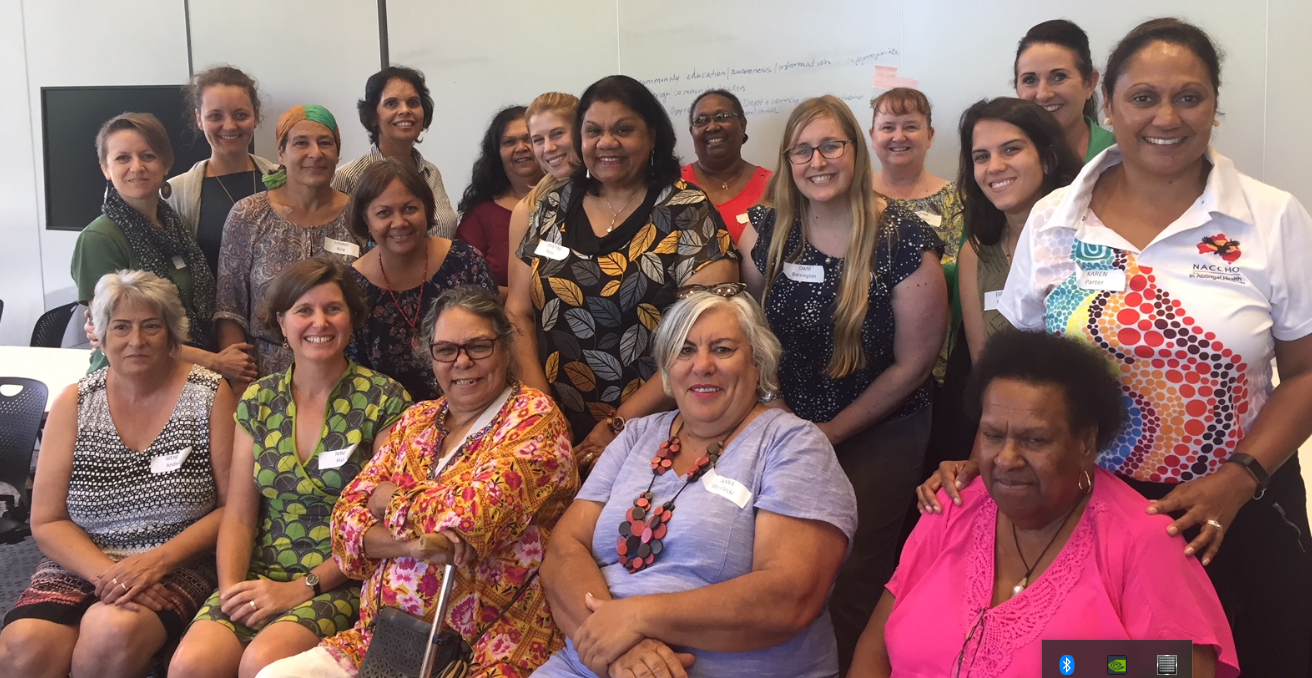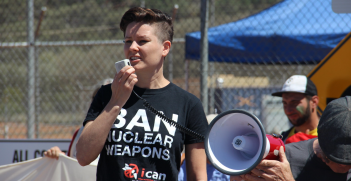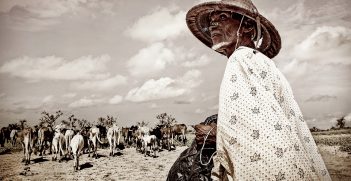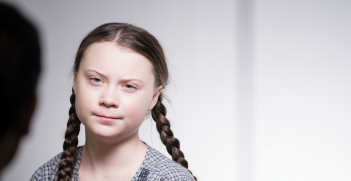Menstrual Hygiene Efforts to Provide Dignity for Girls and Women in Remote Australia

Scotland, Kenya, Uganda, Zambia, and Botswana are all ahead of Australia when it comes to supporting “period dignity.” But efforts are being made at a grassroots level to reduce and remove the barriers faced by Indigenous and non-Indigenous Australian women and girls in remote communities.
It’s International Women’s Day in 2020, yet some girls still face a tough time each month: they experience pain, find it awkward to attend school, are challenged by a lack of privacy, and cannot always afford nor access appropriate sanitary products. “Menstrual health and hygiene” is a topic that is quietly gaining traction in development work around the world, including attention by UNESCO, as this oft-taboo subject begins to be discussed in search of easing these challenges.
But it may come as a surprise that the above barriers, listed in priority of concern from greatest to lesser, were offered by Australian girls living in remote Queensland from both Indigenous and non-Indigenous backgrounds. Remoteness increases the costs of sanitary products by almost 100 percent, lack of pain relief can interrupt learning (“presenteeism”), and the product range can be limited, with no-waste, reusable options such as menstrual cups and reusable pads unavailable. Small communities can have limited discretion for managing such a private topic, and Indigeneity can bring a range of cultural barriers that are taboos. In our interviews with women in the community in Queensland’s Western Cape, they described the shame and secrecy of menstruating. One woman said, “These girls here, they would be so embarrassed to admit that they are on their period. They wouldn’t tell a soul.”
United Nations efforts to highlight and shift menstrual barriers
Supporting period dignity is not a luxury, as all menstruating people and those who support them will know. Beyond being part of the fertility arc of a female’s life, menstrual health also touches on enshrined human rights. The UN Population Fund describes menstrual hygiene and health in terms of the right to human dignity, to an adequate standard of health and wellbeing, to education and work without barriers, and to non-discrimination and gender equality. The current UN Sustainable Development Goal related to hygiene (SDG 6) clearly lists the importance of “paying special attention to the needs of women and girls.” While this is a promising start, described in rather discreet language, there are no dedicated SDG targets or indicators against which to gauge progress.
Looking to Africa for progressive direction on menstrual support
Australia is not a world leader in trying to reduce barriers to “period dignity.” We are conscious that Scotland became the first country in the world to provide free period products in schools and universities in 2018, and is now looking to provide tampons and sanitary pads free at designated public places. Less common for Australia is to look for leadership is in countries of the Global South, yet Kenya, Uganda, Zambia, and Botswana have been seeking to provide free sanitary pads to girls in public schools for several years. The driving forces behind these efforts have included international non-government organisations in collaboration with the countries’ ministries of health and education. However, the success of these initiatives have been mixed, due to government changes and other governance aspects.
Grassroots effort on menstrual hygiene in Indigenous Australia
When the lead author first wrote about menstrual hygiene challenges for Indigenous Australian girls and women in 2017, it triggered a wave of responses. Several Indigenous women, including the other authors of this article, got in touch to reiterate the validity of the issue as they described their experience and those within their families and communities. Their contact led to a gathering of majority Aboriginal and Torres Strait Islander Women for a discussion-based
“yarning circle.” It revealed how widespread the barriers are to period dignity. Charities contacted us, with Days for Girls donating reusable sanitary pads and Share the Dignity donating sanitary products and free sanitary vending machines. The National Aboriginal and Torres Strait Islander Women’s Alliance created networks for remote community distribution. Women on Country liaised within their community to develop an Indigenous-led collaboration between their local school, community, health practitioners, and University of Queensland. The resulting “Dignity Everyday” pilot project works with remote school students (Indigenous and non-Indigenous; boys and girls) to identify, then reduce or remove the identified menstrual hygiene barriers. The original article also garnered political responses, resulting in a Senate Motion on Menstrual Hygiene that captured the attention of the Indigenous Affairs Minister at the time.
Time for Australia to take a multi-tiered approach to period dignity
The efforts in the Scottish Parliament this year, and those in African countries, emphasise the ongoing existence of barriers to period dignity for girls and women. The Australian political and governmental interest in the topic is still emerging, with the axing of GST on sanitary products in late 2018 an important (albeit late-coming) effort. Access to effective and affordable products is a necessary next step forward, with the long-term sustainable provision of products ideally delivered in a multi-tiered approach by government, charities, communities and other stakeholders.
In our research, we found that, in addition to product distribution, this complex topic raises issues of a respectful but open dialogue about menstrual hygiene to reduce the associated stigma, clear and culturally-appropriate puberty education in schools, puberty-related social support at school and within households, as well as options for pain management and availability of waste bins.
Resilience and pride in being a young woman
Despite these challenges still facing some girls around menstrual hygiene and health in remote locations, our pilot project captured a strong sense of pride in themselves, their resilience, and their empowerment. As we celebrate International Women’s Day in Australia and globally, it is inspiring to recall one of our conversations with a year six class of schoolgirls:
Indigenous facilitator: “To avoid feeling shame, what should we do?”
Year six girl: “Be proud.”
Indigenous facilitator: “Proud to be what?”
Year six girl and her class (in unison): “Proud to be a woman!”
Acknowledgements: The authors would like to acknowledge and thank everyone involved in this project, including the Indigenous women and men, girls and boys, local organisations, and school community in the Western Cape. We hope that together our efforts an improve the option to manage with dignity every day.
Dr Nina Lansbury Hall is a teaching and research academic at the School of Public Health at The University of Queensland. Her research focuses on Australian Indigenous health, climate change and health, and water, sanitation, and hygiene.
Professor Sandra Creamer AM is a Waanyi and Kalkadoon woman, the CEO of the National Aboriginal and Torres Strait Islander Women’s Alliance, and an advisor to the Seventh Generation Fund and the International Indigenous Women’s Forum (FIMI), among other roles. With FIMI, she has helped facilitate the Global School on Indigenous Women’s Leadership and Rights at Columbia University, and she is a qualified lawyer with a focus on human rights.
Ms Minnie King is an Umaii woman who co-founded Women on Country in the Western Cape region to support Indigenous women’s health. She is a businesswoman and Managing Director of Embley Contracting, an engineering and environmental management business in Weipa established to capture a diverse range of opportunities for Aboriginal people that represent real investment in their current and future lives.
This article is published under a Creative Commons Licence and may be republished with attribution.





